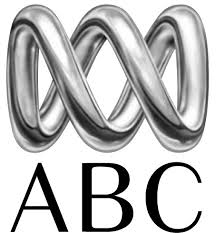Education
Learning Styles for Indigenous Students
As you all are most probably aware and I take it that it is a well recorded fact, the Indigenous Peoples of Australia have and predominently still are an "oral" based community. Given this major fact it goes without saying that these people learn differently than the Non-Indigenous peoples. As educators who are developing and implementing educational activites, it is necessary to observe and respect their learning styles to make a difference.
Australian Indigenous learning characteristics have been identified as follows:
* group rather than individual direction and management
* repeated stimulated learning
* uncritical rather than critical approaches
* personal verses impersonal
* listening rather that verbalising
* indirect questioning
Aboriginal Education Research and Curriculum Resources - The NSW Board of Studies has a very useful page called Aboriginal Education Research and Curriculum Resources for those who require additional works relating school aged children.
Aboriginal Programs Unit within DET - The APU's has provided a good Links page on their site mainly to education related topics.
Adult Education and Training for Indigenous People
This case study describes a program supported by community networks which provides individual pathways in education and training for disengaged and at risk youth, indigenous communities. The communities of practice and partnerships seek to break unproductive cycles and bring fulfilment, empowerment and self esteem to participants.
The authors of this paper present a culturally appropriate introduction to adult education and training for Indigenous people. Something I found interesting was the way they harnessed the energy of the community to create learning opportunities. Click here to Download.
As you all are most probably aware and I take it that it is a well recorded fact, the Indigenous Peoples of Australia have and predominently still are an "oral" based community. Given this major fact it goes without saying that these people learn differently than the Non-Indigenous peoples. As educators who are developing and implementing educational activites, it is necessary to observe and respect their learning styles to make a difference.
Australian Indigenous learning characteristics have been identified as follows:
* group rather than individual direction and management
* repeated stimulated learning
* uncritical rather than critical approaches
* personal verses impersonal
* listening rather that verbalising
* indirect questioning
Aboriginal Education Research and Curriculum Resources - The NSW Board of Studies has a very useful page called Aboriginal Education Research and Curriculum Resources for those who require additional works relating school aged children.
Aboriginal Programs Unit within DET - The APU's has provided a good Links page on their site mainly to education related topics.
Adult Education and Training for Indigenous People
This case study describes a program supported by community networks which provides individual pathways in education and training for disengaged and at risk youth, indigenous communities. The communities of practice and partnerships seek to break unproductive cycles and bring fulfilment, empowerment and self esteem to participants.
The authors of this paper present a culturally appropriate introduction to adult education and training for Indigenous people. Something I found interesting was the way they harnessed the energy of the community to create learning opportunities. Click here to Download.
















